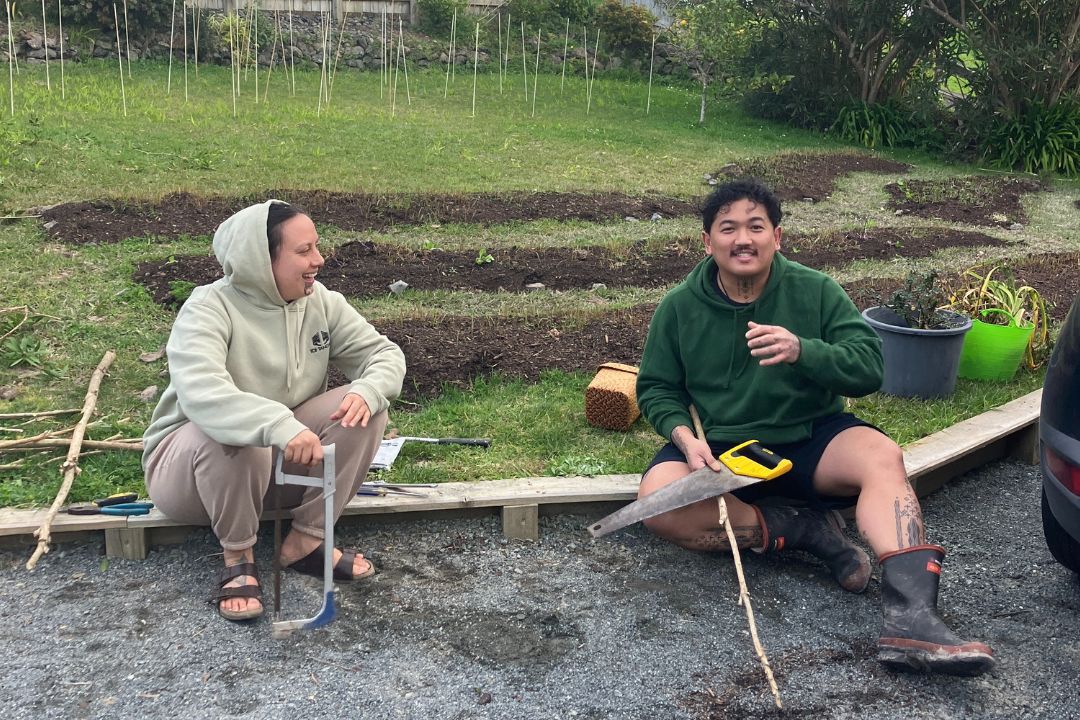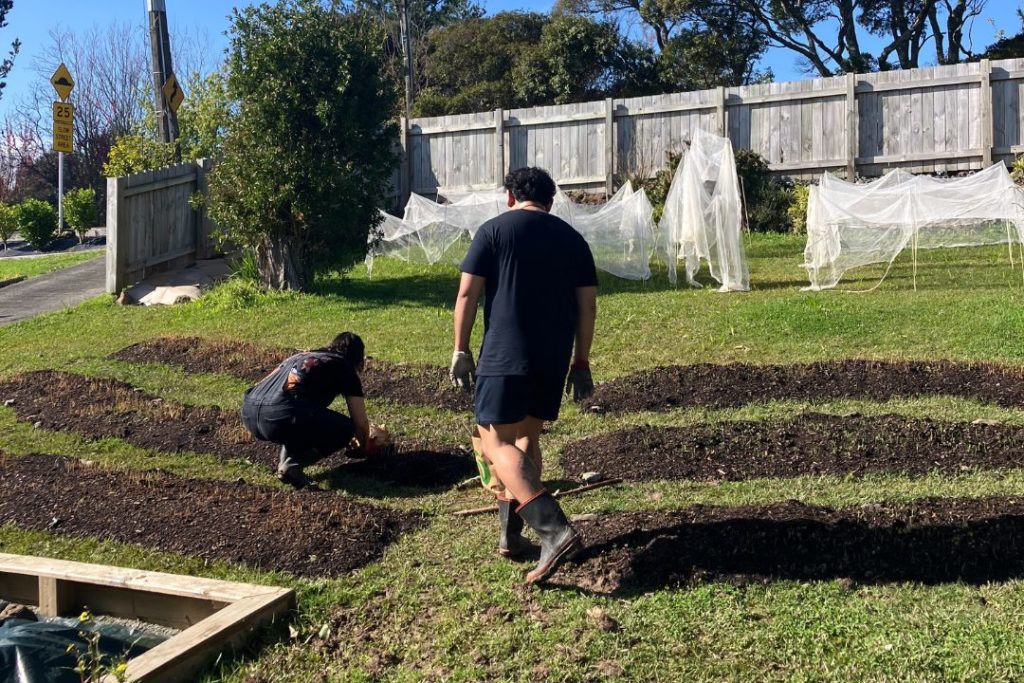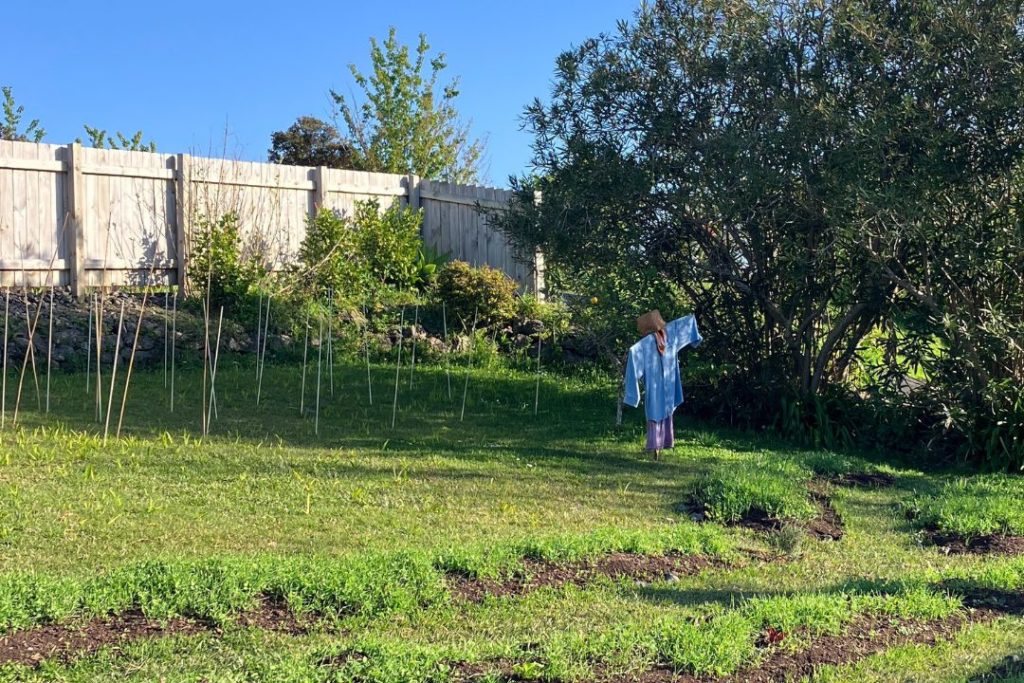
05 Sep Reflecting on the journey of Kai Māori Kai Ora with Haylee Koroi
We’ve wrapped up the last Māori year having reflected on the journey of Kai Māori Kai Ora up to this point. When I first came into this role, Kai Māori Kai Ora was very much grounded within a Western Nutrition background. We saw an opportunity to explore ways of relating to kai that were truly grounded in our own (whānau, hapū, Māori) conceptions of the world (and kai) based on whakapapa and whanaungatanga. A significant part of this process of re-centering our own conceptions of kai, required the de-centering of Western nutrition. This is the context from which the paper Intergenerational Intimacies: A whakapapa conceptualisation of kai came about, bringing our intergenerational relationships with kai to the centre, challenging us to question the dominance of nutrition, as well as wider western conceptions around health and well-being. Here too, we found our feet and our foundations as a Kai Māori Kai Ora kaupapa committed to whānau, hapū and iwi and the furthering of their aspirations, their knowings, and their commitments to their mokopuna.

I’m grateful for the time allowed to think through kai, reflecting on our time in community, and in the legacies of so many Māori movers and shakers, and others from Te Moana nui a Kiwa and beyond. Since the writing of the paper, the place of kai within my personal life has transformed in many big and small ways. From the ways that particular kai bring to the surface memories of people and places, helping me to feel closer to loved ones; the ways I feel much more connected to my own body and its needs in each moment, and of course, our decision to move to Whangārei in order to be closer to those who also have dreams for renewed local food systems based in justice and community. Through our wānanga series alongside Joe Mcleod and Kaimoana Queens which brought us into relationship again with the kai, and gathering practices of our tupuna, we were able to see in real time the work of our practitioners. We come to know again, ourselves, our kai, our taiao. All of these experiences continue to deepen our understandings of kai, and the role that we play as Toi Tangata.
As organisations with ministry contracts, who occupy an intermediary space between the power of the crown, and the mana of whānau, when we are allowed the great honour of coming to know and to work alongside whānau, hapū and marae, as we did last year through the Deep South Research Challenge, we take seriously the role and responsibilties of standing with our whānau. Our role in supporting the rangahau of Southern Kaipara marae brought to the surface again, forgotten names upon the land, places where food was gathered and beloved kai eaten alongside whānau. In all of the beautiful memories and reflections shared by kaumātua, were the everyday ways of living that were deeply connected to kai and te taiao. Here too, it was impossible not to think deeply about the vast changes noted by kaumātua, of rivers rerouted, and whole ecosystems changed. The damage and disruption caused by colonial policies and regulations, superseding the tikanga of haukainga, were named so clearly.
What I have learned viscerally, both through the paper and in my interactions through the mahi of Kai Māori Kai Ora, is that it is not enough to simply move towards our own mātauranga as a place of sanctuary. We must also deliberately step out of settler colonialism, name it, critically engage with it as whānau, and challenge it and all of its illusions, lest we carry the roots, seeds, offshoots of it with us into the worlds we are building. I think of the stories shared by kaumātua, of their places and ways of life destroyed. This truth telling alone gives me the clarity i need to continue in my work. Here too, I take seriously the responsibility not to allow settler colonialism to continue to seep through me to the whānau we work with.

The pathway we are on with Kai Māori Kai Ora, is not a linear one. It is a building, a deconstructing, an unlearning, a practicing, a feeling of joy and fear and sadness, it is an acknowledging of capacity and resource it is a sitting with grace and humility, it is work, it is rest, it is dreaming through generations, it is a gathering up of courage, it is relational, it is a basking together in the fruits of what has already been laid down. As we sit in the wake of those before us, with our worlds, atua, te taiao at the centre, we are looking outwards, in all directions, to whānau – kaumātua, pakeke, rangatahi and pepi, to the openings and connections in our sight, to the many vast relations and kauapapa in this space. We are coming to know the wider ecosystem in which we are situated. As big, wide, and ever-evolving as this space is, we are in good company, and we are learning to travel together.

Haylee Koroi
Haylee (Te Rarawa, Ngāpuhi, Ngati Kahu) is Kaiārahi for Kai Māori Kai Ora at Toi Tangata.



